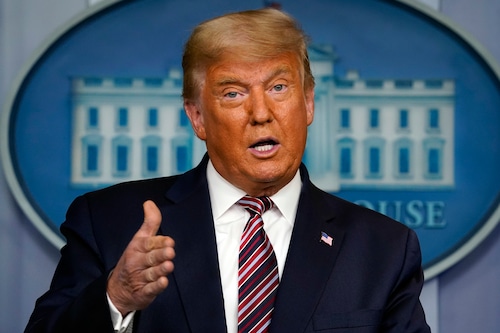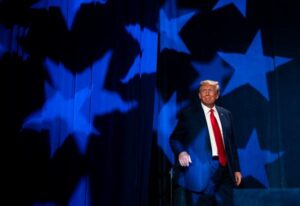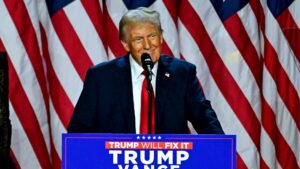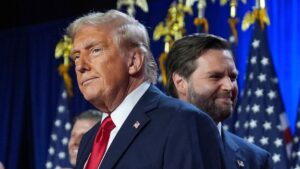New American President and the Release of Pakistani Prisoners: hopes and reality

One would again experience the dawn of Donald Trump, elected as the President of the United States on November 5th although he hasn’t sworn in yet. As an aftermath, many expectations prevail in many nations around the world, including Pakistan. Among those matters most being brought to the forefront for Pakistan is the release of Dr. Aafia Siddiqui, a Pakistani prisoner, who has been held in the United States, a matter that has keenly resonated in the minds of the public of Pakistan.
Dreams Captive to the American President: The Story of Dr. Aafia Siddiqui
Dr. Aafia Siddiqui has been a sore spot for Pakistanis, given her 86-year sentence in the notorious Carswell Prison in Texas. The voice asking for her release echoed for years in Pakistan, telling the government to raise her case effectively before U.S. officials. Recent Pakistani Prime Minister Shehbaz Sharif sent a letter to then-president Joe Biden, pleading that he should take compassionate action and obtain the release of Dr. Siddiqui. And alas, the letter could not get any favorable response.
It could be a shot in the dark when Donald Trump returns to the Oval Office if he would consider pardoning Dr. Siddiqui. Even the Pakistani government has set up a delegation, including Senator Talha Mahmood, Dr. Fowzia Siddiqui, and Anusha Rehman, who are going to lobby for her release.
Donald Trump’s flashy and bold policies have made him different on the world stage; therefore, some Pakistanis believe he’ll do things differently. The followers of Pakistan Tehreek-e-Insaf (PTI) and a few other elements in Pakistan are further expecting that Trump might utilize his influence on U.S. legal issues; thus, the founder of PTI Imran Khan and many other captured Pakistanis will find relief through him.
However, many analysts are warning against such expectations, saying U.S. presidents are wary of getting into the internal affairs of the South Asian countries. PTI may well be supporting Trump, but expecting him to get into such matters as Imran Khan’s incarceration seems an exercise in wishful thinking.
Reality or Wishful Thinking?
While Pakistan has associated certain hopes with American presidents for long, past experience indicates they think largely in terms of national interest and do not engage much with international causes unless it will further serve the strategic interests of America. Traditionally, U.S. policy in South Asia has been about security, counterterrorism, and countering Chinese influence.
expecting the US presidential hopeful to take individual interest in Pakistan’s internal affairs is a daydream rather than something really hoped for. Former Pakistani Ambassador to the US, Hussain Haqqani, and Trump’s close associate, Sajid Tarar, have also made no bones about telling the world not to expect much in cases like PTI or Dr. Aafia Siddiqui’s.
The Emotional Connection of the Pakistani Public
The case of Dr. Aafia Siddiqui goes to the heart of the Pakistani public. So much work has been done for different regimes, but the U.S. judiciary and political setting is so complex that little practical work could be done. Though Prime Minister Shehbaz Sharif and other politicians are moving closer to addressing this issue, it cannot be said whether concrete steps would help in releasing Dr. Siddiqui or the efforts are only made as a diplomatic gesture.
Conclusion: Is Change Possible?
Re-election of Trump has certainly brought in new hope to Pakistan but the reality in store remains uncertain. The foreign policy of Pakistan will need to be strengthened so that it stands firm for its own citizens and learns how to maintain the hard-won rights of its citizens when some American president is not there to rescue the likes of Aafia Siddiqui or Imran Khan’s lady. Public hopes in Pakistan, however, are hard to overlook.
The coming months will tell us whether Trump will indeed act on these expectations and take any step toward fulfilling Pakistan’s hope or if these hopes will gradually fade away.





